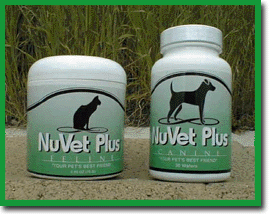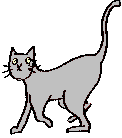QuestionI took in a lost puppy. I was wanting to know do all dogs have wet noises. My two other dogs do. Also I would like to know is can I tell if he has Parvoe. I took him in about three weeks ago He was very malnourished and under weight.He is doing much better now I am taking him to get his shots this weekend. I do not know what tipe of dog he is I hope they will know at the pound.He is, I think only 5 or 6 months old .IF you need more info on him let me know. thank you joyce
AnswerHello Joyce -
Your puppy should have a wet nose, that is usually a sign of good health. If the nose is warm and very dry, chances are your pet may have a fever or has an illness.
Parvo Virus is one of the deadliest diseases in the dog population, particularly among puppies. Gaining entry through the mouth, the virus attacks the digestive tract and kills cells that are critical in the absorption of nutrients. Severe fluid loss through diarrhea and vomiting can lead to death. Parvo also temporarily affects a dog's immune system, and can lead to heart failure in some young dogs.
There is a broad range in the severity of symptoms shown by dogs that are infected with parvovirus. Many adult dogs exposed to the virus show very few if any symptoms. The majority of cases are seen in dogs less than 6 months of age, with the most severe cases seen in puppies younger than 12 weeks of age. There are also significant differences in response to CPV-2 infections and vaccines among different breeds of dogs, with Rottweilers, Doberman Pinschers, and Labrador Retrievers being more susceptible than other breeds.
The most common form of the disease is the intestinal form known as enteritis. CPV-2 enteritis is characterized by vomiting (often severe), diarrhea, dehydration, dark or bloody feces, and in severe cases, fever and lowered white blood cell counts. Acute CPV-2 enteritis can be seen in dogs of any breed, sex, or age. The disease will progress very rapidly and death can occur as early as two days after the onset of the disease. The presence of gram negative bacteria, parasites, or other viruses can worsen the severity of the disease and slow recovery.
Not all cases of bloody diarrhea with or without vomiting are caused by Parvovirus and many sick puppies are misdiagnosed as having 'Parvo.' The only way to know if a dog has Parvovirus is through a positive diagnostic test. In addition to the more time consuming and expensive traditional testing of the blood for titers, a newer and simpler test of the fecal matter with an enzyme-linked immunosorbent assay antigen test (ELISA) are also available through most veterinary clinics. Testing of all suspect cases of Parvo is the only way to correctly diagnose and treat this disease.
The treatment of Parvovirus is fairly straightforward and directed at supportive therapy. Replacing fluids lost through vomiting and diarrhea is probably the single most important treatment. Intravenous administration of a balanced electrolyte solution is preferred, but in less severe cases, subcutaneous or oral fluids may be used. Antibiotic therapy is usually given to help control secondary bacterial infections. In cases of severe vomiting, drugs to slow the vomiting may also be used. After the intestinal symptoms begin to subside, a broad spectrum de-worming agent is often used. Restricting the food during periods of vomiting is also necessary. Undertaking the treatment of affected dogs and puppies without professional veterinary care is very difficult. Even with the best available care, the mortality of severely infected animals is high. Without the correct amount of properly balanced intravenous fluids, the chance of recovery in a severely stricken animal is very small.
As a precautionary recommendation, I would begin to add a supplement Garlic powder to your puppies food. Garlic is an anti-microbial and helps to fight and kill various bacteria and infections. Although this is not a cure, this will help should there be any bacteria present causing an illness in your pet. This will begin to help until you take your pet to the vet this weekend. Once there, they will be able to run a few tests and make a proper diagnosis and conclusion on your puppies overall health. Don't be afraid to sprinkle the Garlic with a heavy hand, dogs love Garlic and he should eat it right up. The only draw back to adding Garlic powder to the food is flatulence. It may be a little stinky but the Garlic is doing its job by pushing the bacteria through the system. Just keep a couple clothes pins handy! This is safe and effective treatment that can be given daily for long periods of time. It is also beneficial to your other dogs as a good preventive measure against fleas, ticks and worms. Garlic can also be fed with conventional anti-biotics and will not harm the system or absorption of the medication.
If your pet has diarrhea and Parvo is not the cause. I recommend a supplement of Probitoics be added to your pets diet. Probitoics are the live cultures found in yogurt and help to build and strengthen the good flora (bacteria) of the gut. When the good bacteria levels are low, the body becomes susceptable to bacteria and infection and cause other problems or conditions to the body from within. Probiotic such as Acidophilus can be found at most pet stores or you can give your pet the "human" form, they both work the same way. Another option is to give your pet, unflavored yogurt daily as treat, most pets love it and enjoy it as a daily treat. Either option, the Probiotics are highly beneficial and can be used long term and with any conventional medication and will actually help the body while taking anti-biotics.
I hope this information has helped you and your pet.
If you would like information on natural and herbal remedies for human and animal concerns please contact me at wintersaurora@yahoo.com and I will be happy to assist you. I also offer a catalog of specially formulated herbal remedies which I can send to you as well. My full product line is also available and can be purchased at www.localharvest.org.
Thank you and best wishes to you and your pets.
Sincerely,
Sharon Hubbs, AHG
Certified Natural Health Consultant & Herbalist

 Fleas?
QuestionHello, I have a cocker spaniel I have used fron
Fleas?
QuestionHello, I have a cocker spaniel I have used fron
 My Pregnant itchy Bulldog; crusty bulldog folds; cleaning bulldog face and folds; itching and scratching nuvet plus pet tabs:
QuestionI recently purchased Matilda.She is pregnant.Sh
My Pregnant itchy Bulldog; crusty bulldog folds; cleaning bulldog face and folds; itching and scratching nuvet plus pet tabs:
QuestionI recently purchased Matilda.She is pregnant.Sh
 English Bulldogs
Question
Jersey and Joe Pa
I have read all of the sugge
English Bulldogs
Question
Jersey and Joe Pa
I have read all of the sugge
 gordon
Question16 year old male cat having problems with kidne
gordon
Question16 year old male cat having problems with kidne
 canine paw rashes, lumps and unknown causes....Pet Nurse Marie please help:
QuestionChubbz in the Snow
QUESTION: I have an 1
canine paw rashes, lumps and unknown causes....Pet Nurse Marie please help:
QuestionChubbz in the Snow
QUESTION: I have an 1